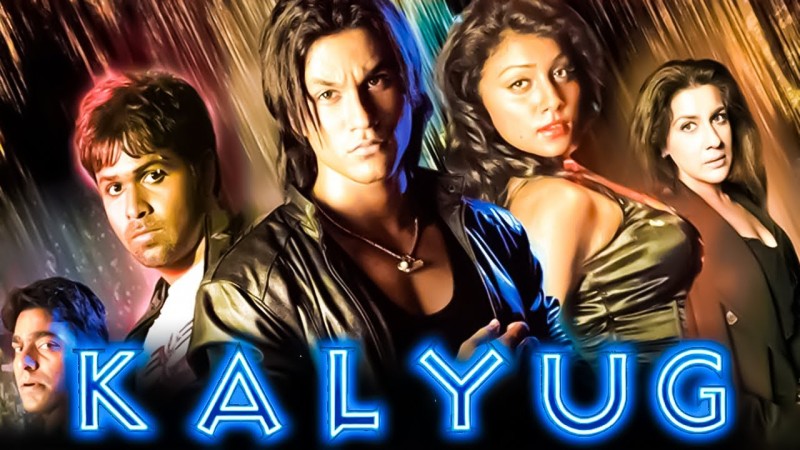
In order to create timeless melodies, music frequently crosses national and cultural boundaries. One such instance is the song "Aadat," which started out as a Pakistani hit and later entered the Bollywood music scene. The story of the song's development from its Pakistani origins to its Bollywood adaptation in the movie "Kalyug" is an intriguing one of imagination, inspiration, and procedural difficulties.
The Pakistani band Jal wrote the music for "Aadat" and performed it at first. Jal, which was founded in 2002, became well-known in the Pakistani music business very quickly. Atif Aslam provided the lead vocals for the group, which also included Goher Mumtaz on guitar and Omer Nadeem on bass. Their distinct fusion of rock and pop music resonated with listeners, and "Aadat" became their breakthrough hit in 2003.
Jal rose to fame thanks to the song's ethereally lovely melody and sentimental lyrics. The song was made even more appealing by Atif Aslam's soulful performance. "Aadat" rose to prominence among Pakistan's youth as an anthem, demonstrating the capacity of music to elicit strong feelings.
The popularity of "Aadat" in the subcontinent was quickly recognised by Bollywood, which is renowned for its flexibility and ability to adapt to a variety of influences. Pritam Chakraborty, a well-known music composer who is frequently praised for his ability to write melodies that stick in the mind, saw an opportunity to make "Aadat" more widely known.
Pritam made the choice in 2005 to include a remix of "Aadat" on the soundtrack of the Bollywood movie "Chocolate." Emraan Hashmi starred in the movie, which also had upbeat, modern songs. But adding "Aadat" to the soundtrack was not without its difficulties for Pritam.
The use of "Aadat" in "Chocolate" presented a significant copyright conundrum. The Pakistani band Jal and their record company owned the song's rights, but Bollywood did not have permission to use it. Concerns over intellectual property rights and royalties resulted in a legal dispute between the parties involved in this decision.
The "Chocolate" movie's creators ultimately decided to cut the recreated version of "Aadat" from the movie to avoid further complications and legal issues. This decision was made in order to prevent copyright infringement, which was disappointing for fans who had been looking forward to the Bollywood adaptation of the beloved song.
Although "Aadat" was shelved in "Chocolate," the Bhatt family, who are well-known for their contributions to the Indian film industry, continued to be moved by its melodic notes. Particularly Mahesh Bhatt saw the song's potential and made the decision to purchase the rights to "Aadat" for their upcoming movie, "Kalyug."
An updated version of the Mahabharata called "Kalyug," which was published in 2005, was set against the backdrop of the pornographic business. The narrative of the movie was dark and intense, so a song like "Aadat" seemed out of place. But the Bhatt team's talent for fusing disparate elements in their movies made it work.
The song "Aadat" was given new life in the movie "Kalyug." This time, Kunal Khemu and Smilie Suri were used as the subject matter, which gave the song's visual representation a distinctive new angle. The newly created "Aadat" was moving and successfully conveyed the core message of the movie, highlighting the grim and dark elements of the narrative.
The audience continued to be moved by Atif Aslam's vocals, which had already established "Aadat" as an iconic song. The intense narrative of the movie was set against the eerie lyrics and music to powerful effect. "Aadat" in "Kalyug" came to represent the film's emotional complexity and the darkness that permeated the lives of the characters.
The journey of "Aadat" from Pakistan to Bollywood is proof that music is a language that is understood by all cultures. It was first a sincere composition by the Pakistani band Jal, and it later became a cultural phenomenon there. Because of copyright concerns, Pritam's attempt to introduce it to Bollywood with "Chocolate" was unsuccessful, but the Bhatt family saw its potential and gave it life in "Kalyug."
Today, "Aadat" is viewed as a representation of international musical collaboration and adaptation, demonstrating the power of music to break down barriers and foster human connection. Its evocative lyrics and melancholy melody continue to captivate listeners, making it a timeless classic that serves as a reminder of the ability of music to touch people's hearts and souls no matter where it comes from.
How 'Go Goa Gone' Redefined Indian Cinema
21 Years Later, Sanjay Dutt and Madhuri Dixit's Fiery Chemistry Ignites 'Kalank'
How 'Go Goa Gone' Redefined Indian Cinema